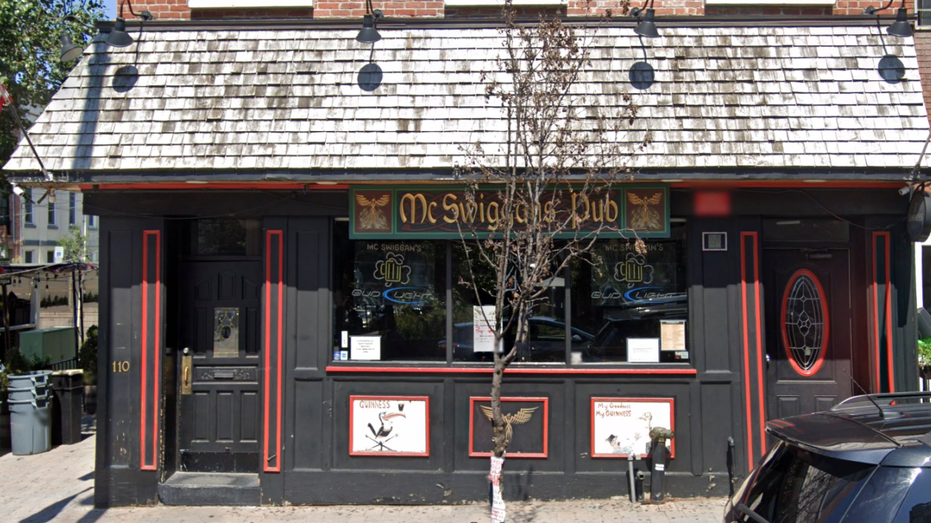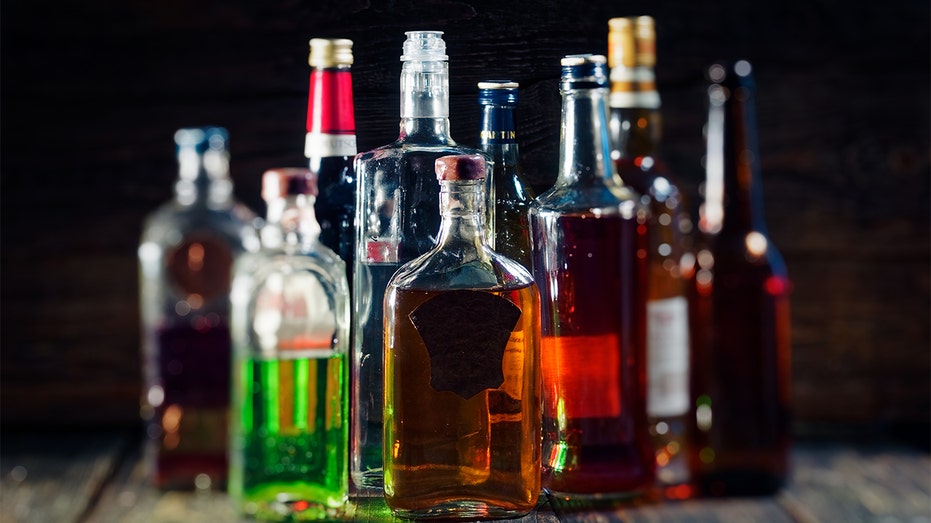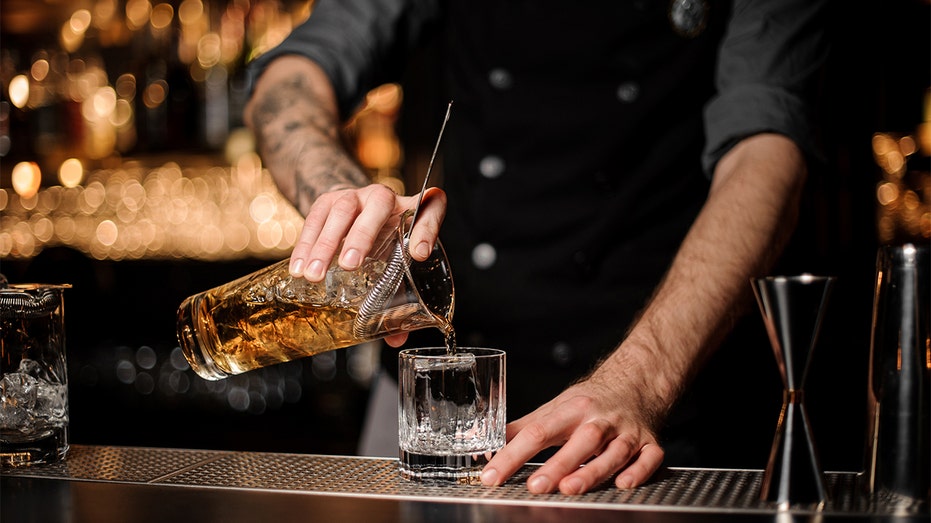Is 'Dry January' hurting bars and alcohol retailers? Business execs chime in
Business leaders in alcohol sales say COVID-19 pandemic, seasonal slowdowns have bigger impact than Dry January for now
'Sober curious' Americans try dry January
Addiction and recovery specialist Adam Jablin says the New Year is a good time to take a hard look at old habits on 'Kennedy.'
Some Dry January objectors have speculated that the annual health campaign is hurting bars and alcohol retailers, yet professionals in the field say there’s a host of reasons why some small business owners are struggling.
The 31-day abstinence movement may not have helped the alcohol industry, especially when a Morning Consult market research report says Dry January has grown in popularity from 13% of American adults practicing it in 2021, to a projected 19% for 2022.
The COVID-19 pandemic and seasonal trends are larger factors that are likely responsible for declining alcohol sales.
DOES 'DRY JANUARY' ACTUALLY IMPROVE YOUR HEALTH?
Pat Light, founder and president of the Light Restaurant Group – which includes the Green Rock bar and McSwiggan's Pub in Hoboken, New Jersey, told FOX Business that January hasn’t been the best month for bars prior, and amid pandemic.

Pat Light, the founder and owner of the McSwiggan's Pub in Hoboken, New Jersey, tells FOX Business that January is typically a slow month for the bar industry. (Google Maps)
"During the first two weeks of January, we saw a slight decrease in alcohol sales within the group," Light told FOX Business in an email. "While Dry January contributed to the decrease, it's not the only factor impacting alcohol sales. Historically, January tends to be a slower month for the industry for several reasons, including New Year's health resolutions, people slowing their spending after holidays, and now ongoing concerns related to the pandemic, to name a few."
He continued, "The biggest issue facing bars and restaurants right now, specifically in New York City, is COVID-19 restrictions. We have seen a large uptick in people coming across the Hudson River to Hoboken because New Jersey doesn't require proof of vaccinations for indoor dining. In my view, the impact of COVID-19 on the industry is similar to when a stock market bubble bursts: It will weed out poorly run bars and restaurants and the well-run places will continue to succeed."
SIMPLY LEMONADE IS RELEASING SPIKED DRINKS FOR SUMMER 2022
To weather pandemic challenges, Light and his team have updated each location’s menus, built outdoor dining structures, leveraged social media to attract patrons and raised prices to offset rising food and alcohol costs.
"As in any industry, bars and restaurants need to adapt or they will falter," Light noted.

While Dry January certainly doesn’t help the alcohol industry, especially when a Morning Consult market research report says the health campaign has grown in popularity from 13% of American adults practicing it in 2021 to a projected 19% for 2022, th (iStock)
Ken Lineberger, founder and CEO of Waters Edge Wineries – a single-brand winery with more than a dozen locations throughout California, Illinois, Kentucky, Montana, Ohio and Oklahoma – told FOX he isn’t certain that Dry January has played a role in the company’s on-premise sales.
"January is typically a quieter month after a hectic December – which was our best month of 2021," Lineberger said. "We also are challenged with staffing issues which cause our locations to limit the number of guests they can serve often leaving tables vacant if we can’t provide the high-quality service in each winery. On top of that, we have experienced the wave of omicron that has impacted our staffing and our guests who have contracted the illness."
He added, "Despite all of this, our January sales are expected to be comparable to 2021 sales, if not slightly better due to the improving economy in most areas of the country. It is unclear if Dry January is having any negative impact on our sales given these other factors that may be influencing it in a more pronounced way."
MEAT IS PILING UP AT STEAKHOUSES AS COVID-WORRIED PATRONS CANCEL RESERVATIONS
Bob Ray, chief operating officer at Margaritas Management Group – a margarita-focused Mexican restaurant brand with 25 locations in the Northeast – told FOX that Dry January doesn’t seem to be hindering its business.
"Our ratio of bar sales to food sales has stayed consistent this month, and we have seen a tick up in how often our guests are choosing to have a margarita," Ray said. "In some markets, we have seen other bars and restaurants close earlier – often due to staffing adjustments but maybe also seasonality. We have held firm on hours and continue to be up in sales after 9 p.m. compared to pre-pandemic levels. Alcohol sales, and specifically margarita sales are the core of this later business for us."
With locations in Connecticut, Maine, Massachusetts, New Hampshire, New Jersey and Pennsylvania, Margaritas hasn’t been immune to external factors like winter storms, but the company has "shifted up to 20%" of its dining business to takeout, according to Ray.
GET FOX BUSINESS ON THE GO BY CLICKING HERE
Compared to mom-and-pop bars that mainly sell alcohol over food, takeout and delivery services can be a potential challenge depending on local ordinances on liquor sales and the rise of direct-to-consumer alcohol sellers and third-party delivery services.
A media representative for Restaurant365 told FOX that liquor sales at restaurants across the country are down an average of 143% from December to January, according to data the all-in-one restaurant management software platform has on file.

Bars and restaurants that sell alcohol are seeing a sales decline that's likely the result of post-holiday penny-pinching, pandemic-related sheltering in place and health-conscious New Year's resolutions, among several other external factors. (iStock)
Throughout the U.S., food and beverage service leaders have cited consumer hesitance for dine-in service in light of the recent COVID-19 omicron surge as a major factor in declining sales. Subsequent vaccine mandates for indoor dining may be a factor for unvaccinated patrons who prefer to eat and drink at home.
CLICK HERE TO READ MORE ON FOX BUSINESS
As of Jan. 27, 2022, the Johns Hopkins COVID-19 dashboard’s tally shows more than 19.2 million Americans have been infected within a 28-day period nationwide. More than 50,910 of those cases have resulted in death.




















